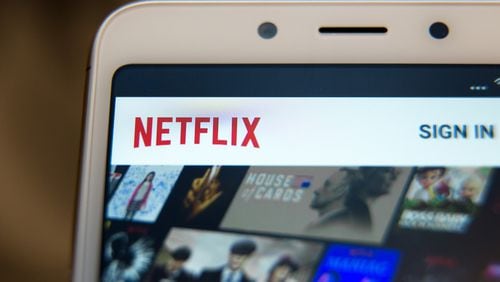Gainesville education professor Bryan Sorohan addresses the contention that teachers can entice their students away from their smartphones by making their lessons more engaging.
By Bryan Sorohan
Maureen Downey’s recent column on Fulton County Schools’ new restrictions on cellphones next academic year highlights the mixed bag of benefits and drawbacks to phone use in classrooms. The issue is somewhat more complex than mere distraction, though. Like any other piece of technology, cellphones are a tool that can be used for good or evil in pretty much any situation.
Practically every modern technology for the past century has been touted as a boon for education. In the 1920s and 1930s, radio was supposed to bring learning to the masses through educational programming. Likewise, television was predicted to make learning more widely accessible and popular in the 1950s. In the early 1990s, even before they provided any funding to place computers in schools, Georgia politicians were touting the educational benefits that would come from using technology and the necessity for teachers to adopt it (presumably out of pocket).
What we got instead was Little Orphan Annie on our radios, Uncle Milty and Real Housewives on our TVs, and Grand Theft Auto on our video screens. Education might be a social good, but entertainment was what brought in the profits and what drew the vast majority of Americans to the newest technologies.
The problems with cellphones have followed the same pattern, with universal expectations of ceaseless connectivity and communication thrown in along with the amusement factor. Combined with the evolution of cellphones over the past 30 years from novelty to necessity to entitlement for users, the impact on the classroom has grown exponentially.
Teachers cannot and will never be able to compete with the game and social media industries for the attention of their cellphone-using students. That fact has to be acknowledged before any solution can be contemplated. Those industries spend millions if not billions of dollars making sure that their customers are addicted to their products.
Teachers are constantly exhorted to make their lessons “engaging” and “interactive,” but the idea that they will be provided with anything like the resources of the entertainment industry to make lessons on fractions or biomes as engrossing as Call of Duty Mobile is laughable.
Sermons about better classroom management from administrators are not helpful when the number of other demands on teacher attention is continually exploding. To make things even more complicated, research has shown that for many users, cellphones remain a distraction even when they are placed out of sight because they are constantly thinking about what they might be missing (a situation nearly indistinguishable from outright addiction).
Banning cellphones from classrooms outright, while emotionally satisfying for some, is a loser’s game and can potentially be quite counterproductive. We all know how effective the ban on hand-held cellphone usage by drivers has been in this state.
Cellphone use while driving, unlike that in the classroom, is literally a life-and-death proposition. Yet, on a typical day on a typical Georgia road, law enforcement could write as many tickets for illegal phone usage as their hands could take and probably not get half of the offenders. If history tells us nothing else, it is that schoolchildren will be likewise endlessly inventive when it comes to circumventing school rules and restrictions.
Moreover, a ban on cellphone use disadvantages a considerable number of students, especially those from lower-income families. The pandemic exposed the drastic divide in technology access for many students in this country, and studies have indicated that a large fraction of students, particularly from lower socioeconomic families, use cellphones as their sole technology. In the meantime, many of the applications that are intended to make lessons more engaging and interactive utilize smartphones as response and engagement devices for students.
The power of the cellphone as a tool for involving students in class discussion and for allowing teachers to assess comprehension in real time (known as formative assessment) is considerable. Cloud storage and collaborative applications make smartphones into potential powerhouse educational tools if used for good instead of evil.
The irony of much technological development over the past 100 years has been that the initial social benefits and progress predicted for new tools have usually been outpaced and submerged by the endless amoral quest for profits. The answer to school phone use, pro or con, will be no easier than the solution to many other problems caused by technological advances.
Perhaps technology itself will evolve a way to make phones controllable and amenable to educational uses. Demanding that the harried and vilified individual teacher should take on entire global industries in the quest for student attention is just an excuse to avoid and perpetuate the problem.
About the Author
Credit: Natrice Miller/AJC








